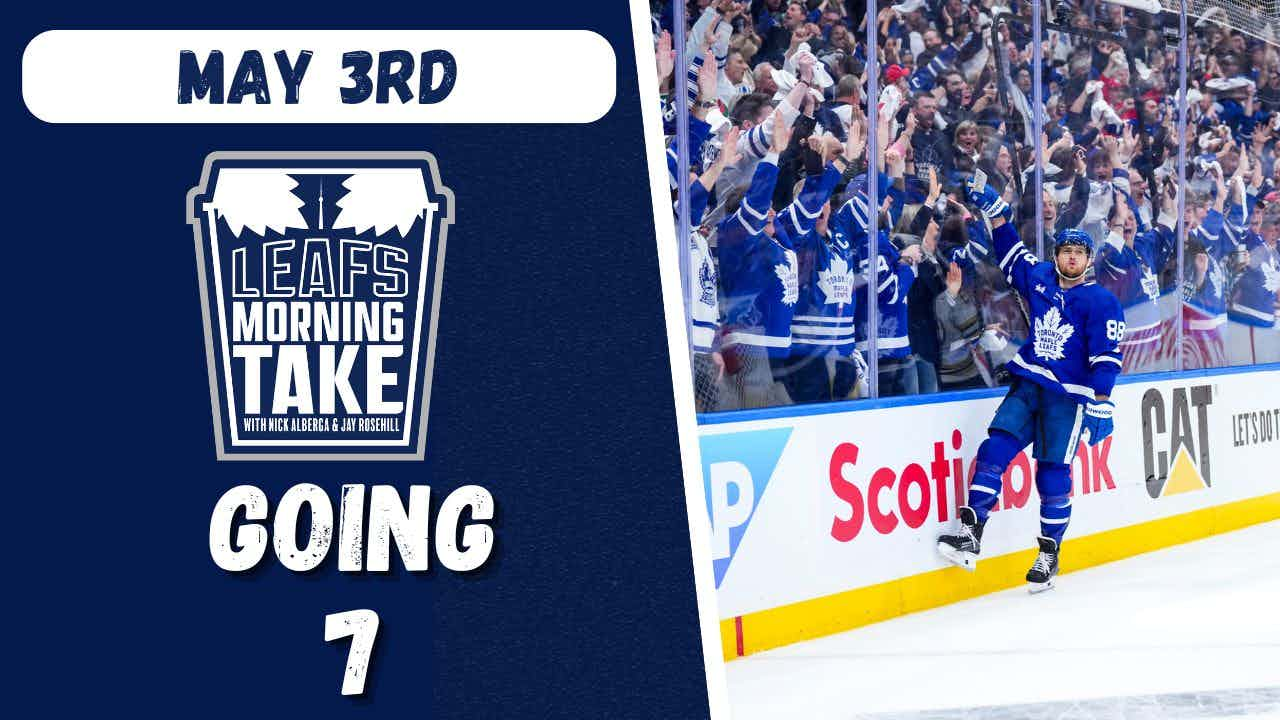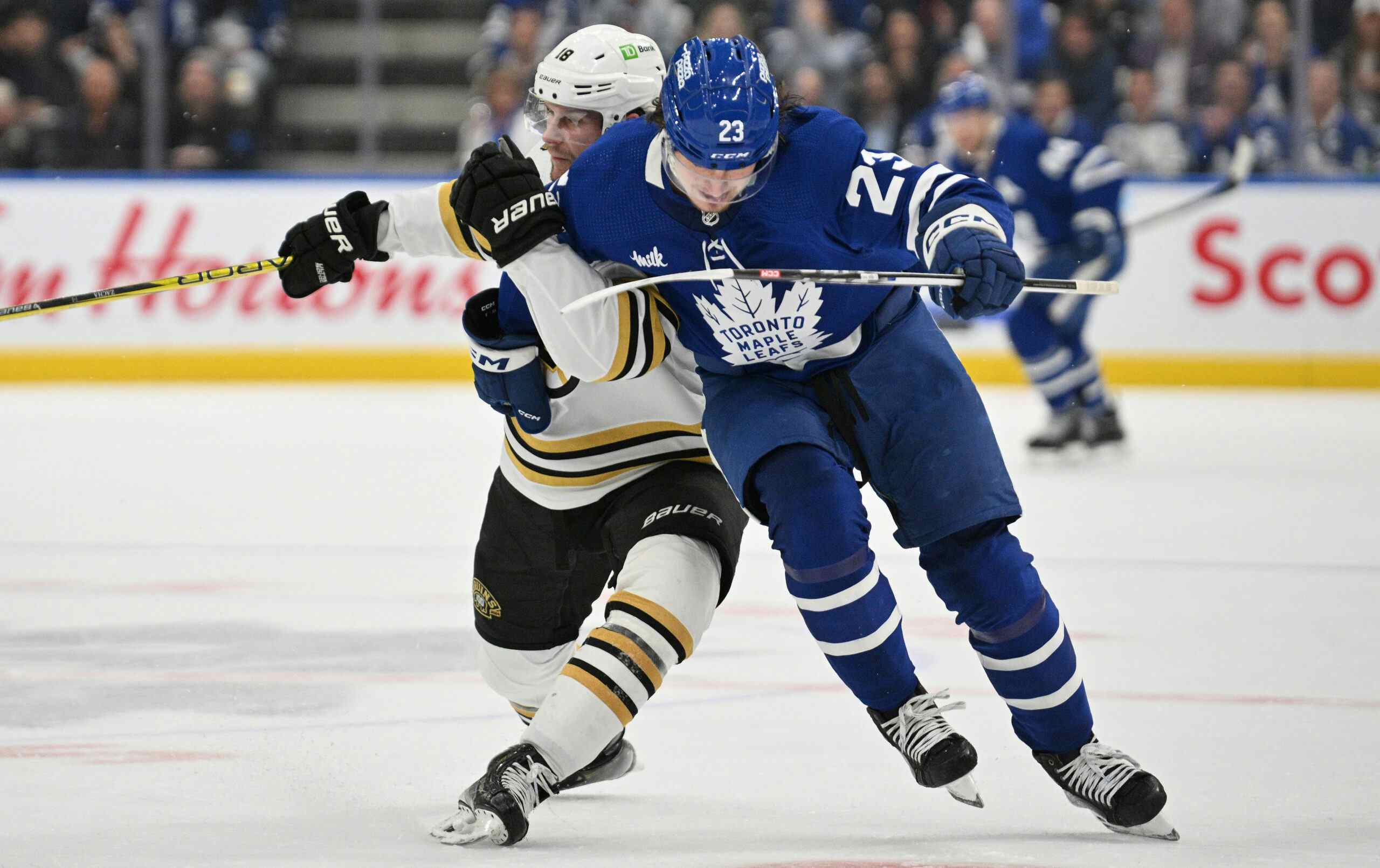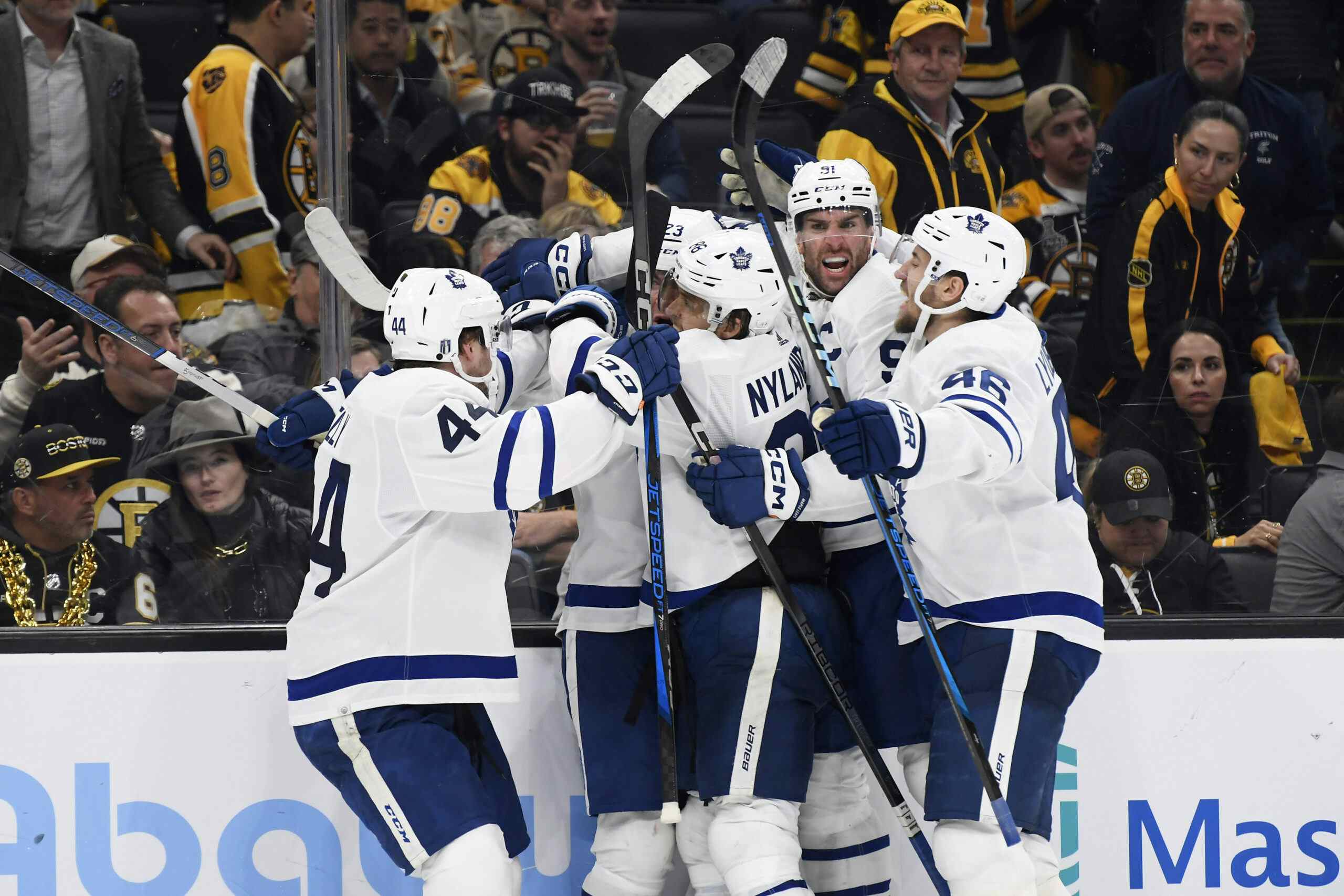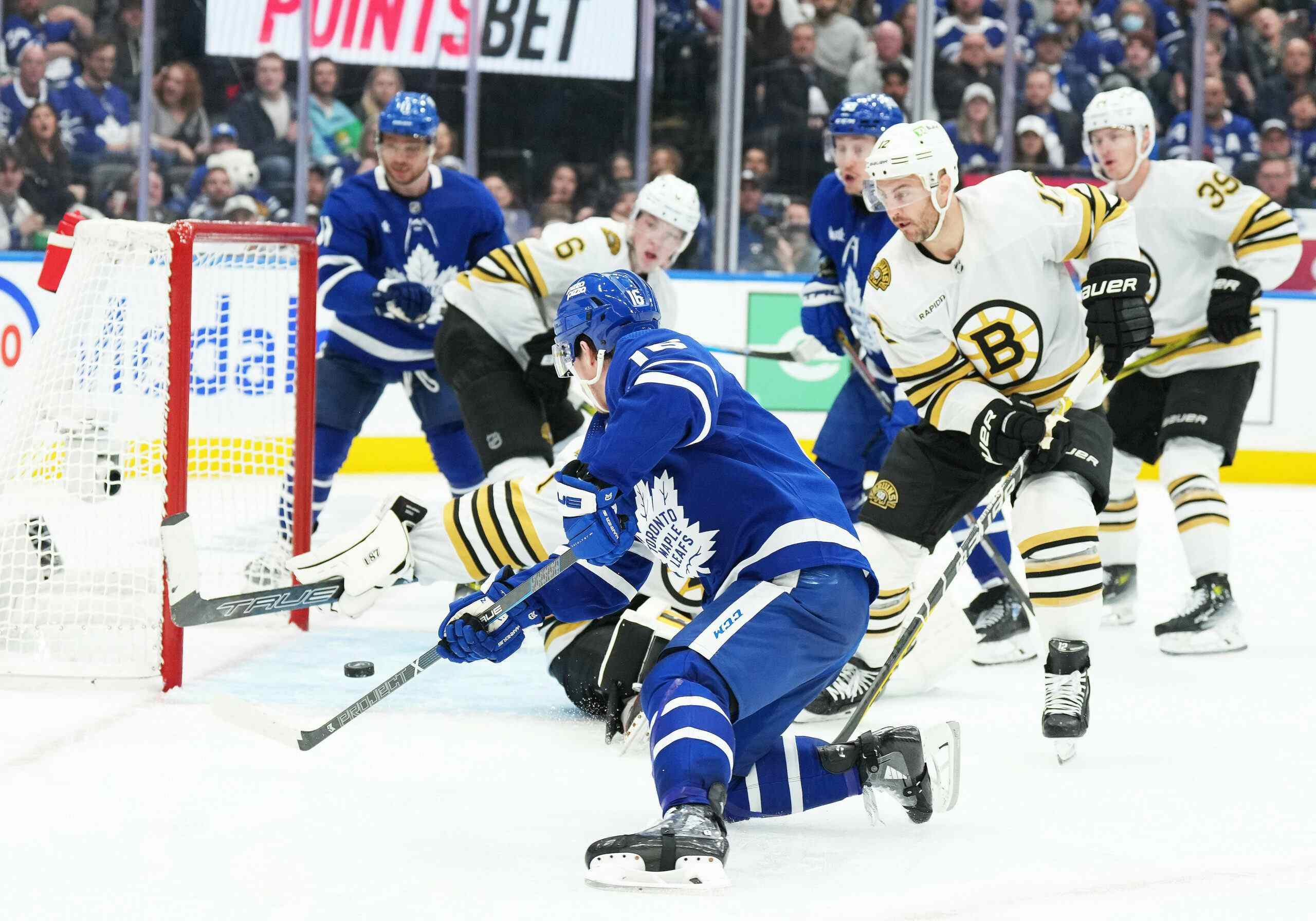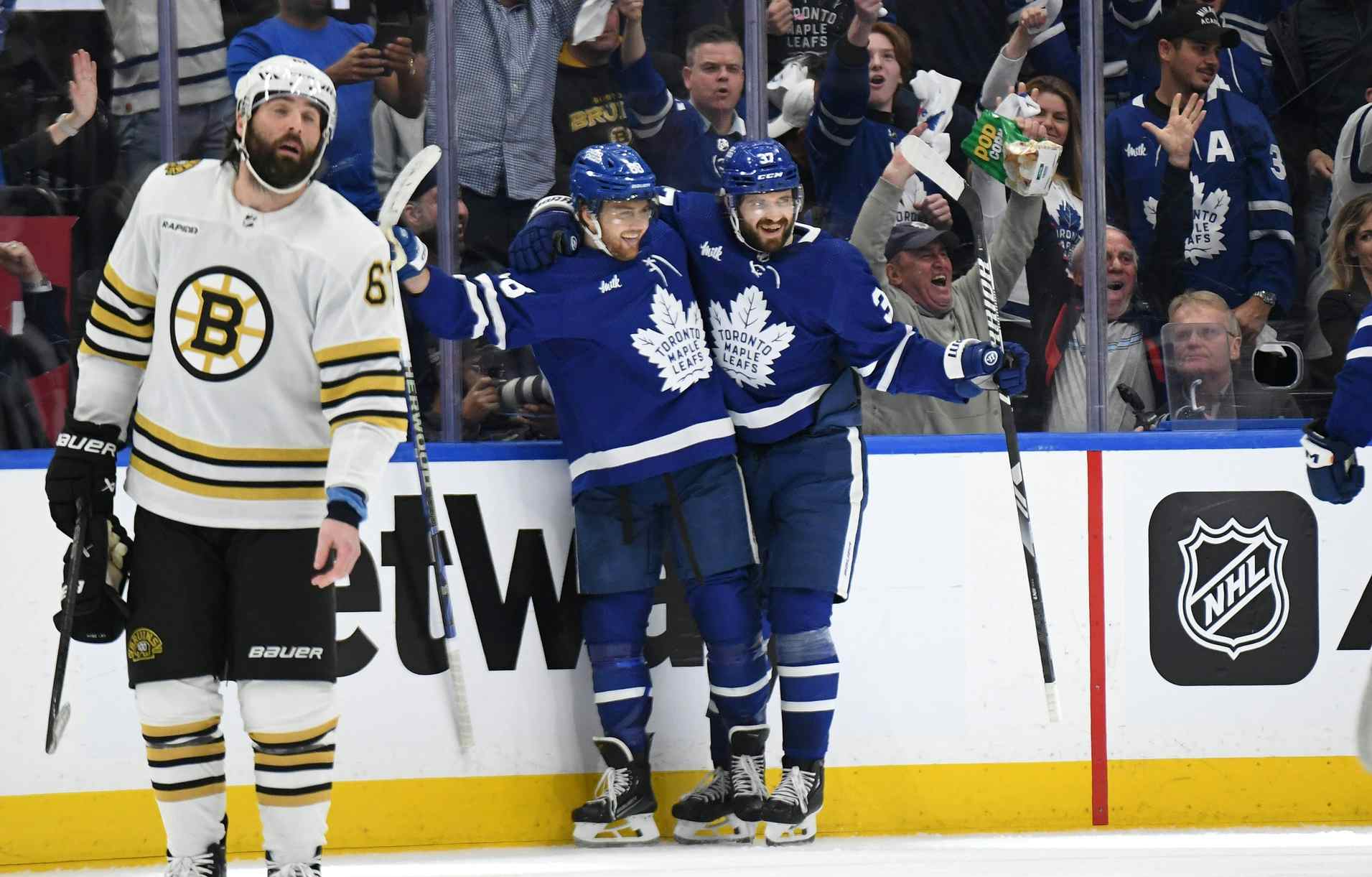How The Leafs Fought The Salary Cap (and Won)
You know, when Dave Nonis said he wasn’t “worried about year six or seven right now”, in reference it looked like a quote that was going to haunt him for the rest of his front office career. Granted, he was totally wrong about getting a “very good player” in year one of the deal, but today, he confirmed that he had nothing to worry about, with management perhaps performing Maple Leaf Sports & Entertainments financial magnum opus.
The Biggest Parachute of All
A few weeks ago, I talked about the idea of parachuting out of a contract, and how the Toronto Maple Leafs found a way to get the best years out of Jason Blake’s contact before leaving the bad ones to the Anaheim Ducks. In this case, the Leafs didn’t get any good milage out of the plane to begin with but did they ever manage to get out of something that everybody thought was inescapable.
Let’s be blunt about it. For the sake of fielding a competitive hockey team in a “market X”, David Clarkson has the worst contract in the history of the National Hockey League. That sounds hyperbolic, but if you think about it, anything before the salary cap shouldn’t count, nor should anything that was attached to a compliance buyout, mysterious loan to Europe, or a career and cap-ending injury (more on that later).
David Clarkson is being paid somewhere between 250-500% of what the market would give him if he became a free agent right now, based on his production, underlying numbers, and reputation. He has a no-movement clause, which he did waive for the sake of accepting a trade, be could be used to block being assigned to the AHL (which, since 2013, can only save a team up to $925,000 in cap space). His contract is full of signing bonuses, which need to be paid in full in the event of a buyout. It’s a perfect storm of awful, and quite honestly, the fact it was signed was grounds for terminating the entire staff.
How It Went Down
Today, the Leafs were approached with the perfect situation for them.
Nathan Horton’s seven-year deal, signed within minutes of Clarkson’s, has been equally disastrous but for completely different reasons. Horton was putting up a relatively decent 1.7 points per sixty minutes at even strength and was a positive relative possession player on a good possession team. He had been throwing around his body, wearing his heart on his sleeve, and making his team better in most of the shifts he played. Really, Horton was something close to what the Leafs wanted Clarkson to be.
But then, tragedy. Midway through the year, Horton suffered back an abdominal injuries. He’s recovered from the latter, but the former has become a degenerative issue. What looked like weeks became months, which became a return at the start of this year, which became speculation that he may never play again.
So, why are the Leafs taking on his contract if he can’t play? Well, that’s what Long-Term Injury is for. When a player is placed on long-term IR, they don’t count towards the salary cap during the season. They do count in the offseason, but you’re allowed to go over by 10% of the ceiling in that time, which is more than Horton’s $5.3 million hit. Simply, they’ll be paying Horton $26 million over the next five years to sit in the rhetorical press box, not unlike Marc Savard in Boston and Chris Pronger in Philadelphia.
But why do the Blue Jackets prefer Clarkson to burying Horton themselves? Two reasons. First off, Columbus made an error in signing Horton that, given the situation, is worse than Clarkson’s buyout-proof bonus structure. Horton’s contract was not insured in the event of injury. I’m not sure if it was an oversight or an intentional attempt to save real-world money on an already expensive contract, but it’s left the team 100% responsible for paying Horton to sit out. In a market like Toronto, where the team makes tens of millions of dollars in net profits per year, that’s not the end of the world. But Columbus isn’t exactly rolling in dough, and it makes more sense for them to pay somebody to play mediocre hockey than no hockey at all. As such, the Leafs brass was contacted today, and while they were reportedly shocked, made the deal within hours (presumably, half of that time involved Brandon Pridham using his prior expertise to make sure everything was kosher).
The best case scenario, for the Leafs, is that Horton never plays again and collects money from the comfort of his own home. The worst case? He recovers (Joffrey Lupul once had career-threatening back injuries before coming to Toronto) and is a better hockey player than David Clarkson on a slightly more expensive but more flexible contract. Either way, it’s a Toronto victory, and a move that the Blue Jackets are okay with too.
The MLSE Mythbuster
I want to touch on two asides before we wrap this up. The first one is the myth that Maple Leaf Sports & Entertainment isn’t interested in investing money for the sake of winning at sports. I think that they’ve proven that to not be the case in the past year and a half, by making two big mistakes and trying to fix them.
The other mistake was Jermain Defoe with Toronto FC. They offered him more money than an MLS player had ever seen on this side of the continent and pumped more money into marketing him, in an effort to show they were serious about winning. Toronto FC collapsed and Defoe wanted out. They then spent more money to fix the issue, performing a rare international trade for Jozy Altidore and buying even more talent to round out the team. Despite the most expensive summer in North American history being a failure, they weren’t scared to try again.
This move is a leaf off the same tree. David Clarkson was brought in to show that the Leafs weren’t scared to go after the top free agents on the market and that they wanted to have a firm identity. Unfortunately, he was the worst top free agent in a long time and that identity was “bad”. But today, they truly accepted that failure and essentially committed to eating $25 million. If that doesn’t show that they aren’t being stingy, I’m not sure what will.
The issue, if anything, has been incompetence, not financial hesitance.
Thanks, David
My last aside goes out to David Clarkson.
At the end of the day, you can’t blame David for signing the deal that he did with the Leafs. He was offered enough money to keep him comfortable for the rest of his life by his hometown team, and he took it. How could you possibly blame him?
David Clarkson got to spend a year and a half living out the dream of millions of locals, putting on the sweater he grew up idolizing while being compensated better than he could ever imagine. He was exceptional to the fans, interacting with anybody he could and participating in every community event he had time for. Even when he was playing at his worst, he was one of the few on the team who looked like he was giving it his all every time he stepped on the ice. In a non-cap world, his contract doesn’t matter and he’s one of the most well-liked members of this team.
At the end of the day, David Clarkson was a decent bottom six forward who, despite being picked on for his mistakes and his ability to fall off his skates unexpectedly and frequently, spent the past year and a half being the ultimate Toronto Maple Leafs fan. His only crime was being overpaid, and ultimately, the guilt goes to the management team that offered him the opportunity.
Today, they realized the error of their ways and parachuted. They got to move on. Hopefully, Clarkson gets to as well. I genuinely hope that he has a spectacular five and a half years in Columbus.
Thanks for trying, Dave. Genuinely.
Recent articles from Jeff Veillette

